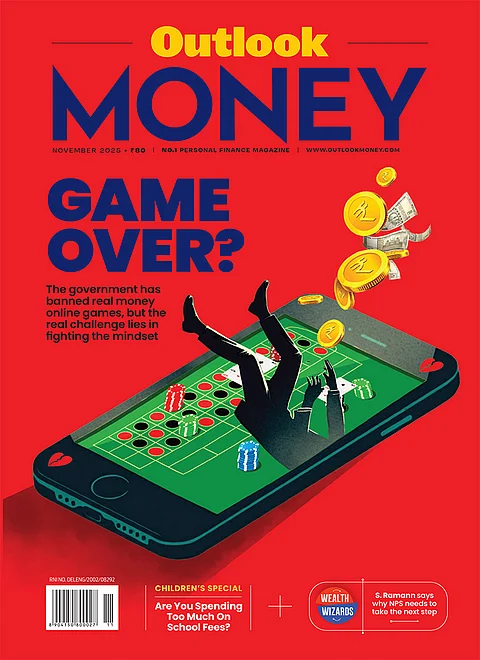The pandemic has brought home the reality that we are only as strong as our weakest link.
The Theory of Constraints states that in the system there is one constraint that must be improved upon or eliminated. If it erupts, it could jeopardise the entire process and block you from achieving your goal. This is the system’s weakest link. It must be identified and rectified so that it is no longer a handicap.
Now apply that to your finances.
If your entire financial situation and goal of wealth creation is only as strong as its weakest link, what is it? Identify the one issue that has the potential to unleash havoc on your finances. Then work on rectifying it to achieve financial stability.
The pandemic and its repercussions have shoved two learnings into the limelight. One of the awakenings for many is that the link between health security and financial security is nearly not as diffused as imagined. The two are very intrinsically linked together.
1. Living without insurance is risky
Let’s consider an individual who is the sole breadwinner of his family. He has a wife, two little children, and he partially supports his parents. Despite his promising career, fat paycheques and well-diversified portfolio, he is the weakest link. This sounds perversely counterintuitive but is a fact. Imagine the tragedy of this individual being involved in an accident that leaves him partially paralysed. Or, being a victim of the pandemic. Or, suffering a fatal heart attack.
Being the primary source of support for an entire family, and responsible for their future and provision puts him in a precarious situation. He is the weakest link. To eliminate this weakness, he must have a substantial term insurance cover. Insurance takes care of the weakest link in a person’s financial chain. That is why you need to get your insurance needs sorted out even before evaluating investment alternatives.
I would suggest that the same be applied to health insurance, for every single member in the family. You need just one illness to cause a major dent in your savings or clean it out altogether.
It may sound morbid, but do not ignore this. You never buy medical insurance because you hope to submit a claim someday. You never buy term insurance because you hope your loved ones can submit a claim someday. You buy it to protect yourself and your family against unexpected and tragic events.
2. Not having a buffer for the unexpected
What do you do when life throws you a curveball? Or, bowls you a googly? Note, I use the word when and not if. Because the unexpected does takes place. The unpleasant does occur. And yet, the bills don’t stop.
Life insurance will help cushion the blow from losing a breadwinner. Medical insurance will cover up huge bills. But what if it is neither? There is job loss. Unprecedented travel due to a family member’s death or a sudden sickness or accident. Urgent and extensive repair needed on the house.
When disruptive events occur, it is natural to get anxious and tense. The idea of having an emergency fund is so that you will not have to deal with monetary stress, in addition to the emotional turmoil you are already battling with. To the extent that you can provide a buffer, you must.
Sure, you can resort to utilising your credit card or take a personal loan. But debt must be repaid, and that too with a stiff rate of interest. You can also borrow from family or friends where you only have to repay the capital. But it has its own share of humiliation and obligation. Debt, in whatever form, is crippling and will add to your financial woes. In periods of such turmoil, the absolutely last thing you should be doing is getting into debt.
You can dip into your provident fund or sell investments from your child’s education fund or your retirement kitty. But this money is being saved for a very specific and predetermined purpose. And if you pull out of it, those inevitable goals will be in jeopardy. Moreover, if you depend on your investments to bail you out, you may be forced to sell your equity funds or stocks when the market is in the doldrums. Not to mention the tax implication.
An emergency fund is an absolute must. Which brings us to the next question, where must you invest the money?
A bank fixed deposit has the assurance of safety. But emergencies, by nature, do not occur frequently and you may not have to dip into this kitty for years on end. So, you could also consider a liquid or an ultra short-term fund. Your emergency fund need not be just one investment, but a combination of a few. Just don’t chase returns, focus only on liquidity and safety. Ensure that this money is easily accessible to other family members too. If you meet with an accident or are hospitalised, and your family cannot access this money, the entire purpose is defeated.
This is important
Most people cannot comprehend how closely intertwined financial security and personal health are.
Those under constant financial stress and anxiety will see evidence of it on their mental, emotional, and physical well-being. Financial resources affect multiple determinants of health such as stress levels, housing, food, social interactions as well as the ability to access healthcare.
On the other hand, unprecedented health expenses are a major cause for financial volatility, worry, and delayed or foregone medical care. It can even wipe out years of savings.
Fix these weak links. Get insured. Put an emergency fund in place. It will help ride treacherous waters, and your future self will be ever so grateful.
***
Term Insurance Policy: How much?
- There must be no compromise on this. If the bread-earner passes away, it is the only security the family will have.
- A basic calculation would be at least 15-20 times your annual income before tax. Consider all lifestyle expenses, servicing of loans, education of children, and retirement kitty of the spouse.
- Buying a life insurance cover is not a one-time affair. Keep reviewing your requirements at least once in five years. If required, increase the sum assured.
Emergency Fund: How Much?
- The actual amount that the emergency fund must hold will depend on whether other family members are employed and the number of dependents. A thumb rule is to have 8 to 12 months of basic living expenses. But there is a lot of customisation and personalisation around the exact figure.
- Cover all your basic expenses: School/college/tuition fees of children, premiums towards insurance policies, salaries of the house help, EMIs of loans, rent/monthly society outgoings, electricity bill, water bill, groceries, medication, Wi-Fi, cable and so on.
- Get as accurate as possible. It must be a concrete goal. Do not get demoralised if it is a large amount. You do not have to create an emergency fund overnight, it can be done over months. Should you use the funds, don’t forget to replenish it.
The author is Senior Editor at Morningstar







